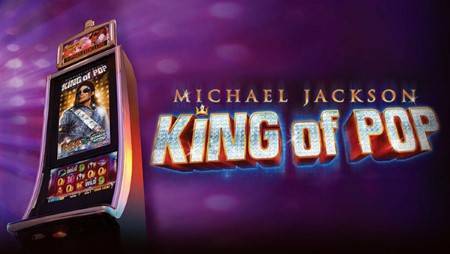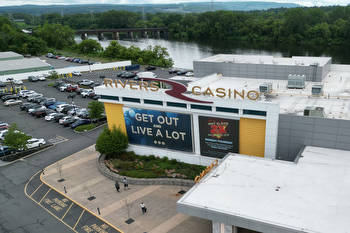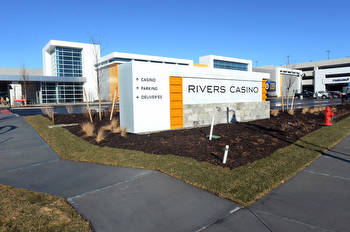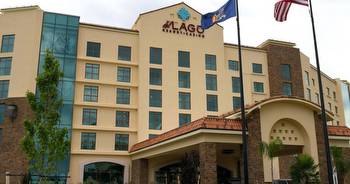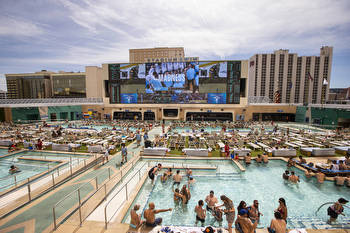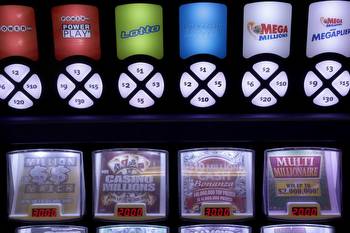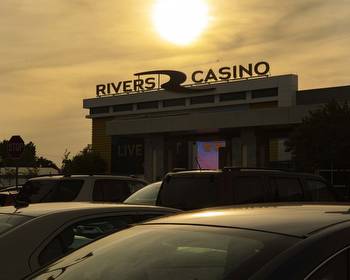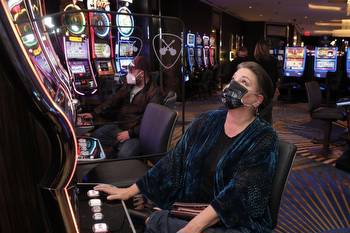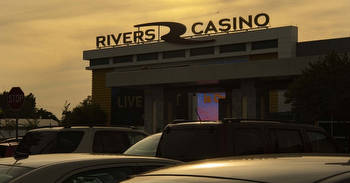- Report: New York casinos failing to meet revenue projections

SCHENECTADY — Despite recent gains, New York’s four commercial casinos, including Rivers Casino & Resort in Schenectady, have failed to meet revenue projections established four years ago, according to a new report released Thursday by the state’s comptroller’s office.
The 24-page report found that local governments have collected $176 million in gaming tax revenue between 2017 and 2022, but noted that all four casinos have yet to meet gross gaming revenue projections established in 2019, and in three cases, have still not met gaming tax revenue projections established that same year.
The report comes as the state seeks to open three additional Las Vegas-style casinos downstate — a process that began earlier this year, when the state’s Gaming Facility Location Board voted to issue a request for applications.
State Comptroller Thomas DiNapoli said that a failure to meet revenue projections is evidence that casinos are “not a sure bet” for local municipalities seeking to host a casino moving forward.
“While casinos have generated local gaming tax revenue, the impacts vary for the communities that receive such revenues,” he said. “It’s my hope that this report gives state and local officials a clearer perspective that can help potential host communities avoid the pitfalls that arise with misguided expectations about the public benefits of casinos.”
Tioga Downs Casino, the smallest commercial casino located in the state’s Southern Tier, brought in $6.7 million in local gaming taxes last year, just above the $6.4 million projection established in 2019. The casino that year brought in $5.5 million in gaming taxes, according to the report.
But all four casinos have failed to meet projections relating to gross gaming revenue — or the total collected by casinos after winnings are paid out — the report states.
Rivers collected $198.7 million in gross gaming revenue last year, about $24 million less than the projected $222.5 million projected in 2019. The casino brought in $169.1 million in gross revenue in 2019, according to the report.
The Schenectady casino brought in $9.9 million in local government gaming taxes last year, below the $16.4 million projected in 2019 and about $2 million less than 2019, when the casino accounted for $11.7 million in local gaming taxes.
The drop in local tax revenue can be attributed to a 2021 change in state law that allowed casinos to keep move revenue from slot machines. Rivers, which had been paying the highest slot tax rate at the time, saw its tax rate drop from 45% to 30%.
Rivers has brought in $55.2 million in gaming tax revenue to local municipalities since opening in 2017, including $13.8 million for the city and county of Schenectady, according to the report. The casino is also the only in the state to pay 100% property taxes, which nets an additional $4 million annually for the county, city and Schenectady school district.
Rush Street Gaming, the owners of Rivers Casino, were not available for comment for this story.
But other casinos have missed revenue projections by even greater amounts, including del Lago Resort and Casino in the Finger Lakes, which brought in $161.3 million last year, or $121 million less than the 2019 projection of $282 million. Resorts World Catskills Casino brought in $228.7 million in 2022, $72.9 million less than the projected $301.6 million projection from 2019, according to the report.
Del Lago brought in $8.3 million in local gaming tax revenue last year, while Resorts World accounted for $10.6 million that same year. Both failed to meet their 2019 projections of $16 million and $20.7 million, respectively, according to the report.
But the report also indicates a number of challenges and changes to state law in recent years that have impacted gross revenues and ultimately local tax revenue, including the COVID-19 pandemic that closed casinos for months and limited public access until June 2021.
“Despite this, most casinos’ GGR returned to roughly pre-pandemic levels by 2021, and by 2022 each casino was exceeding pre-pandemic GGR,” the report states.
But game tax revenue did not recover as quickly, and in 2021 the state allowed casinos to petition the gaming commission to lower the slot tax rate — a move that allowed casinos to retain more revenue, resulting in $41. 9 million loss for local governments, according to the report.
The state, that same year, approved mobile sports wagering, which does not carry a local government gaming tax component. In-house sports wagering brought in $23 million in casino revenue in 2021, which was taxed at 10%. The creation of mobile sports betting, which does not include a local tax component, created a 66% drop in in-house sports wagering in 2022, resulting in a $300,000 drop in local gaming taxes, the report found.
The change created a 66% drop in in-house sports wagering, in 2022, which brought in $23 million in revenue that was taxed at 10% in 2021 according to the report, accounting for a $300,000 drop in local gaming taxes.
But despite the challenges, New York’s casinos have continued to see increases in gross gaming revenues, including Rivers. Despite the challenges, Rivers casino is continuing to see revenue gains, according to state data.
The casino has brought in just over $104.1 million in gross revenue between January and June of this year, a 8.6% increase from the $95.8 million brought in over the same time period last year, according to state data.
Rivers has so far outpaced gross gaming revenue collected by the state’s three other casinos this year, state data shows.
Tioga brought in just over $54 million between January and June of this year, a $4 million, 7.7% increase compared to the same period last year, when revenue reached $50.1 million. At del Lago, revenue increased to $77.9 million between January and June this year, a $1 million or 2.3% increase compared to the same period last year, according to state data.
Resorts World saw a slip dip in revenue during the same period, with revenue falling from $107 million between January and June last year to $102 million during the same period this year.
Locally, Schenectady County officials said they are happy with the performance of Rivers casino despite the establishment falling short of projections.
County Manager Rory Fluman, who was part of the effort to bring a casino to Schenectady dating back to 2014, said that the casino helps sponsor a number of popular events and that game tax revenue the county has collected from the casino has allowed lawmakers to keep taxes flat while continuing to provide critical services for residents.
“Schenectady County did not make a bad decision by being able to win the lottery of having a casino here,” he said. “To me the projections I first saw in 2014 almost don’t mean anything because I just look at how great the revenue has been since they opened.”
Ray Gillen, chairman of the Schenectady County Metroplex Development Authority, which played a key role in attracting the casino to Mohawk Harbor, said Rivers has created hundreds of local jobs and has boosted local tourism, leading to a “sizeable increase” in sales tax and hotel occupancy tax revenue for the county.
“Rivers Casino & Resort has created new jobs and generated increased revenue for both the city and county,” Gillen said in a statement. “It has also greatly boosted tourism and visitation to our community.”







